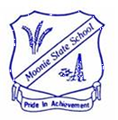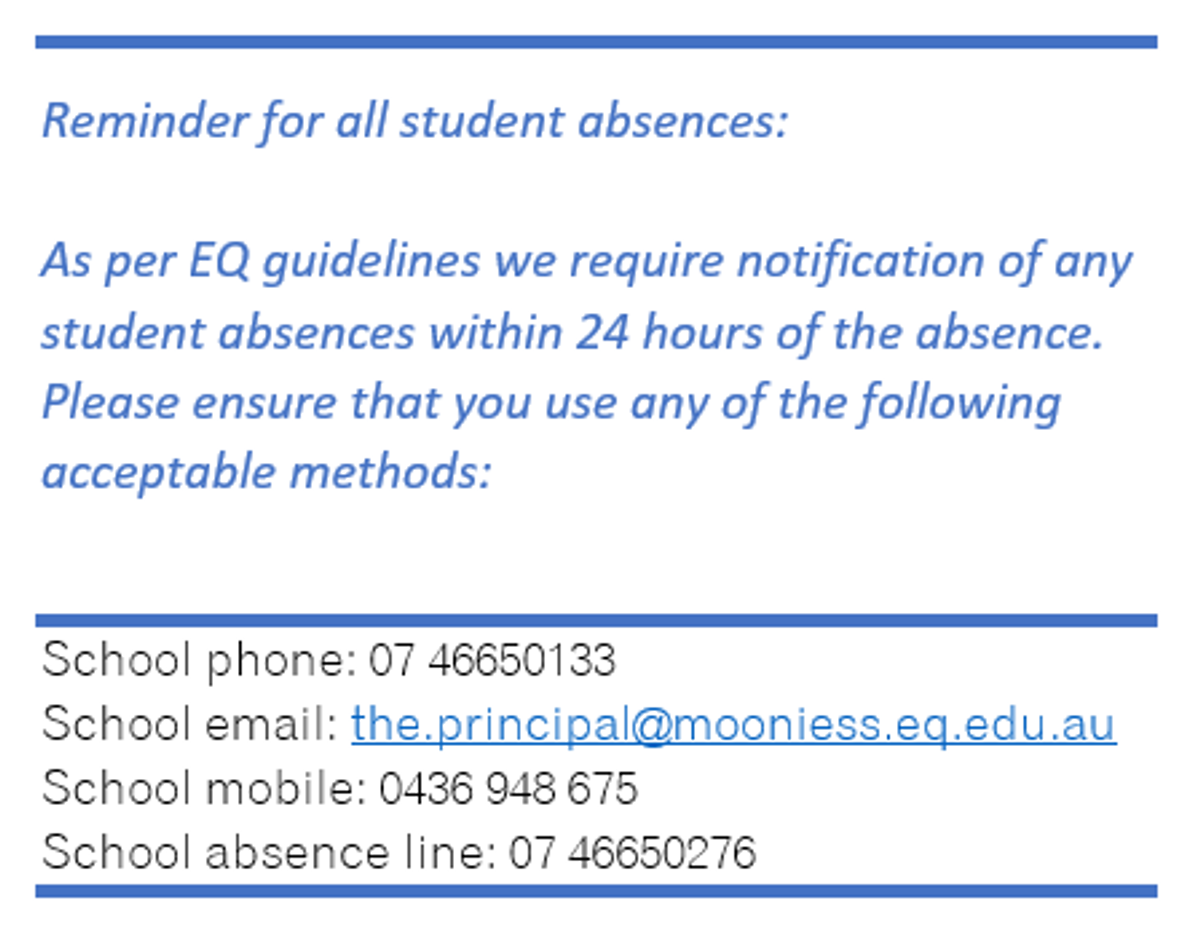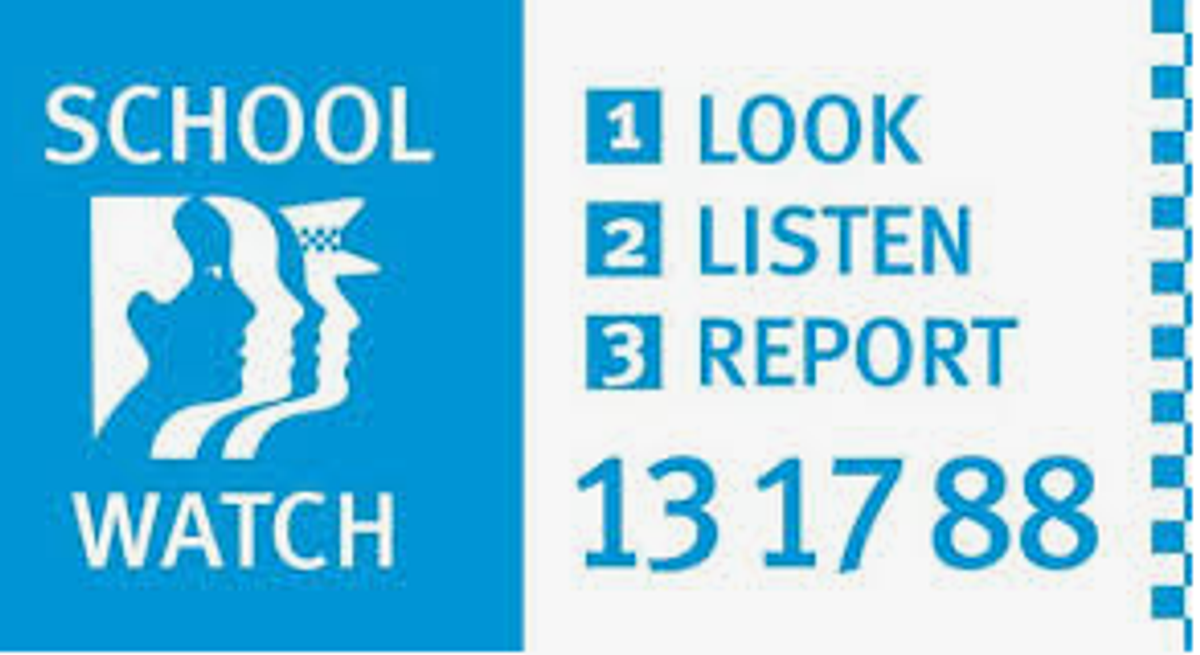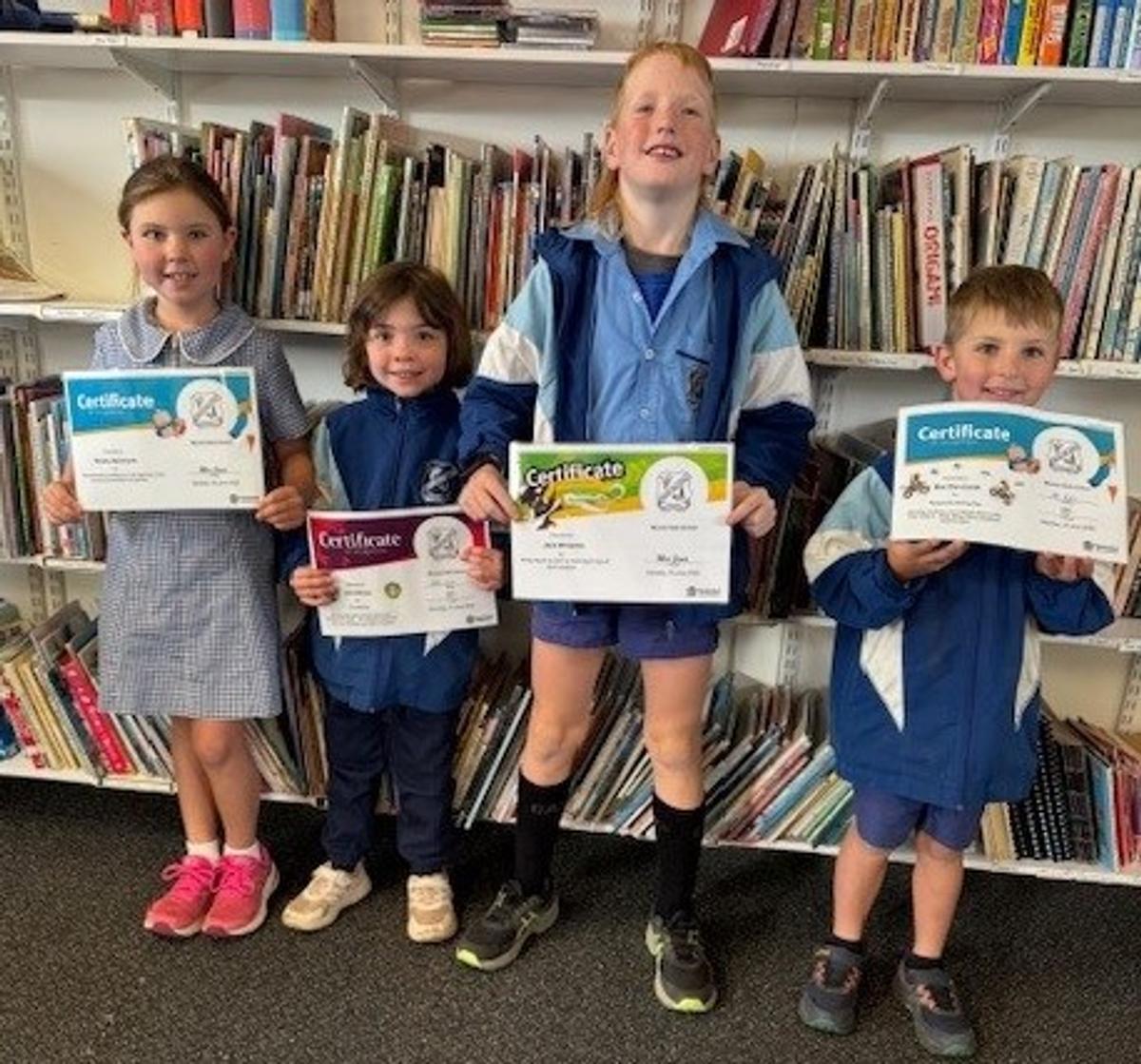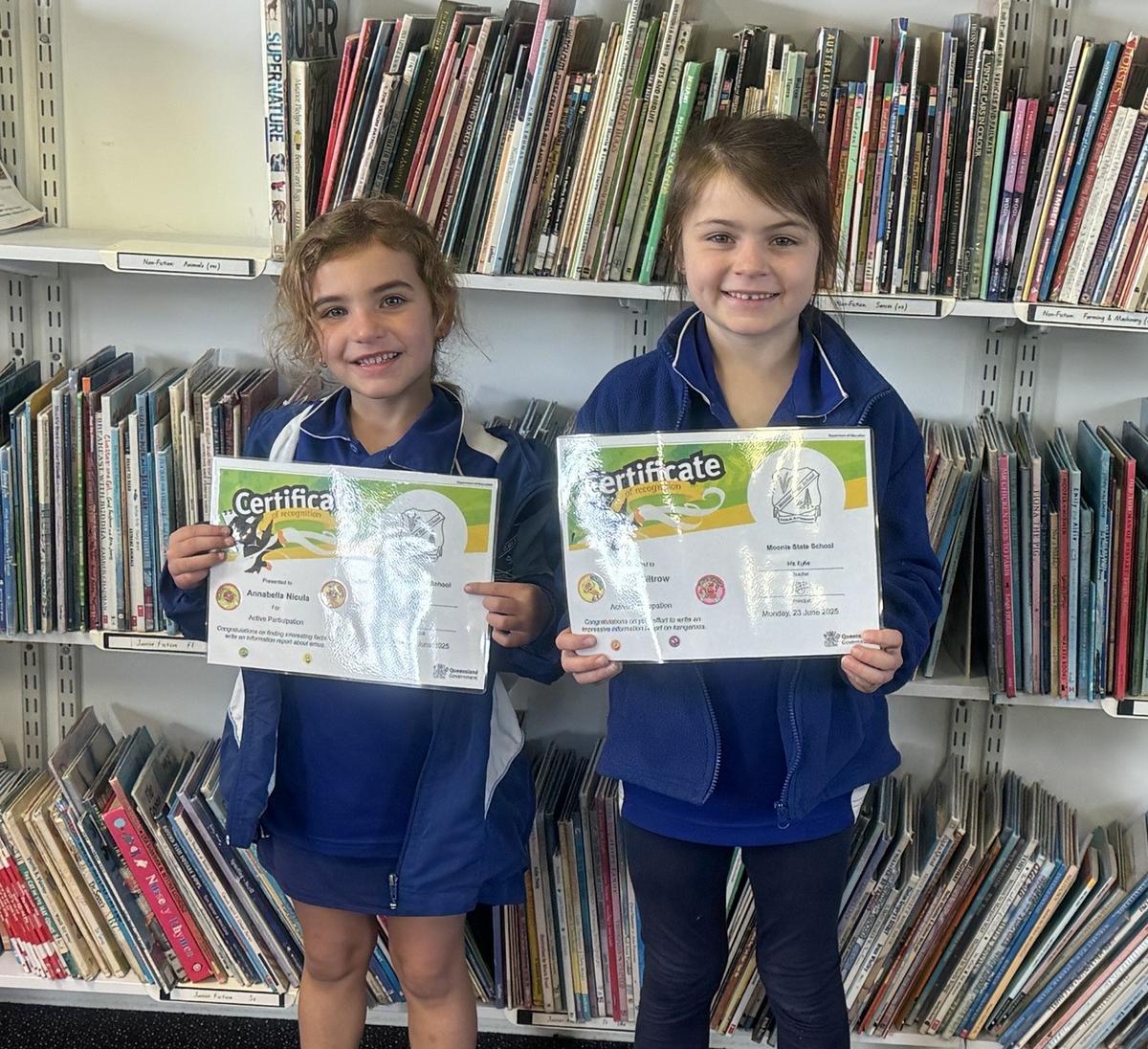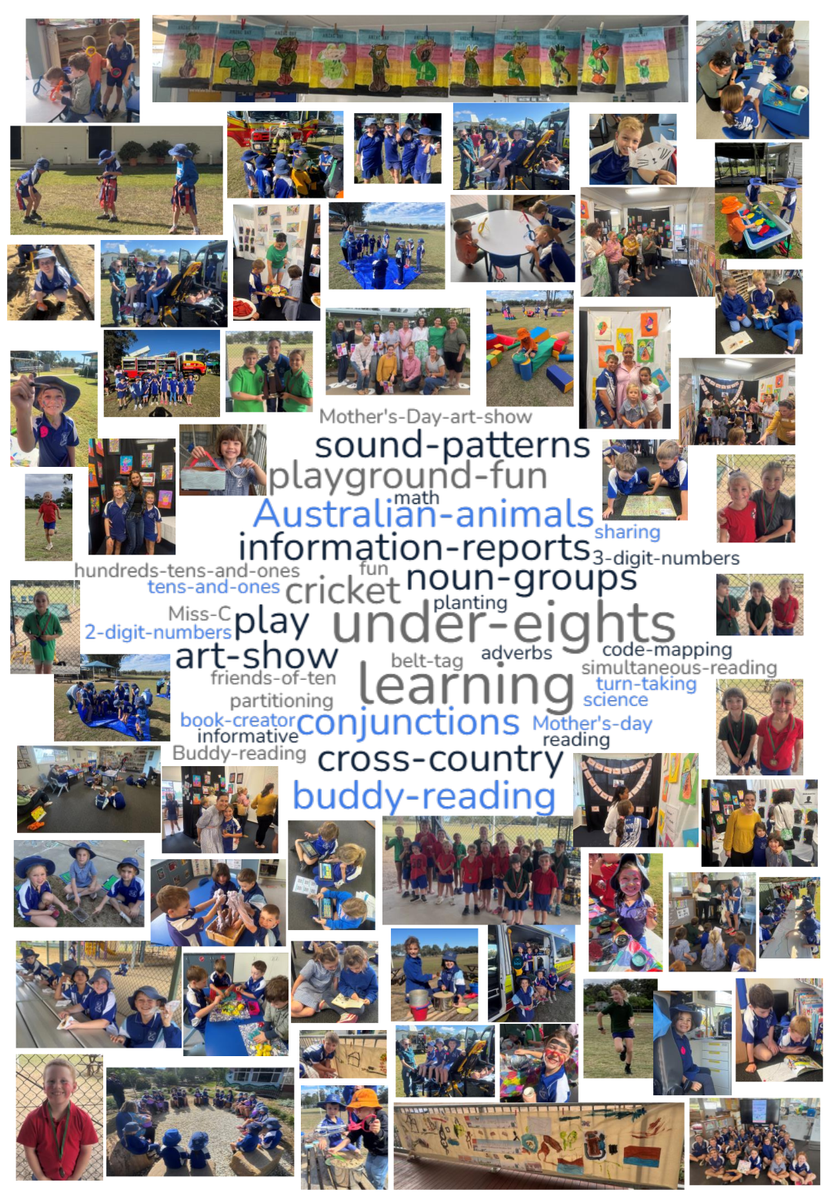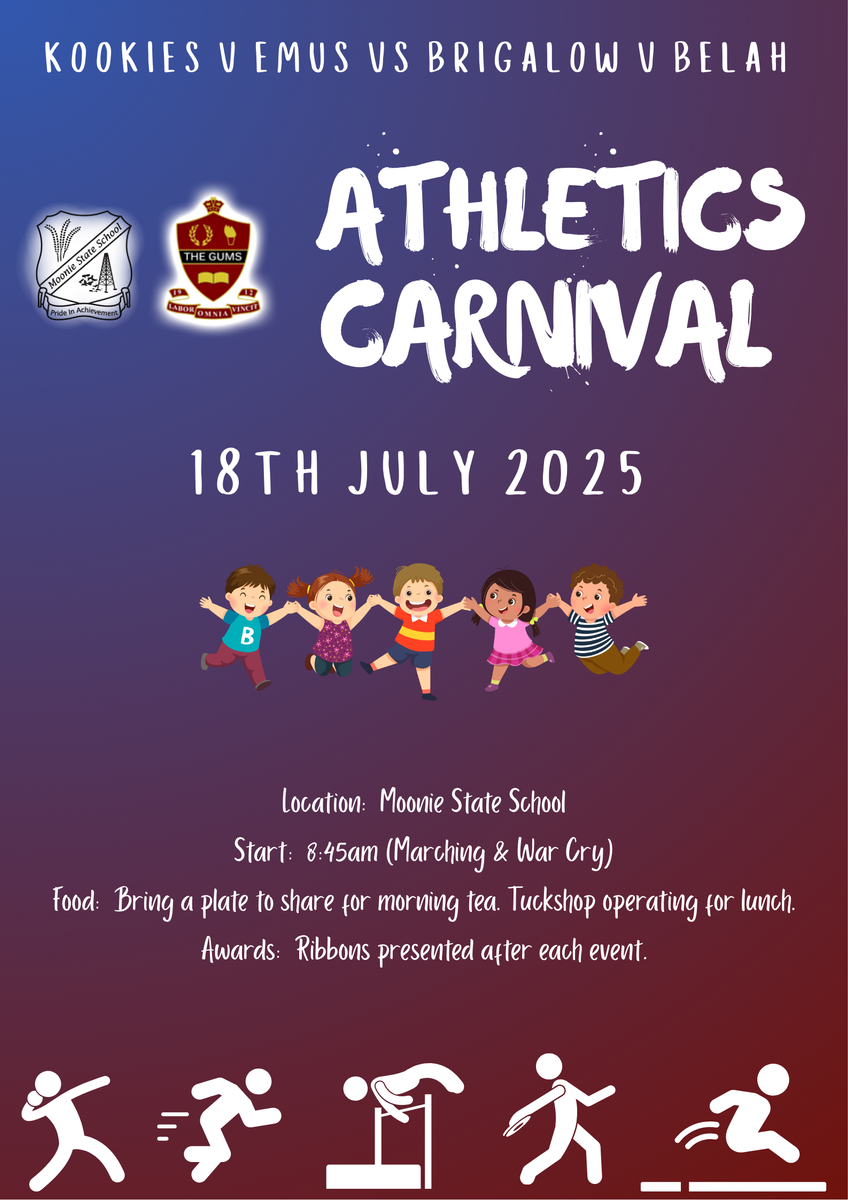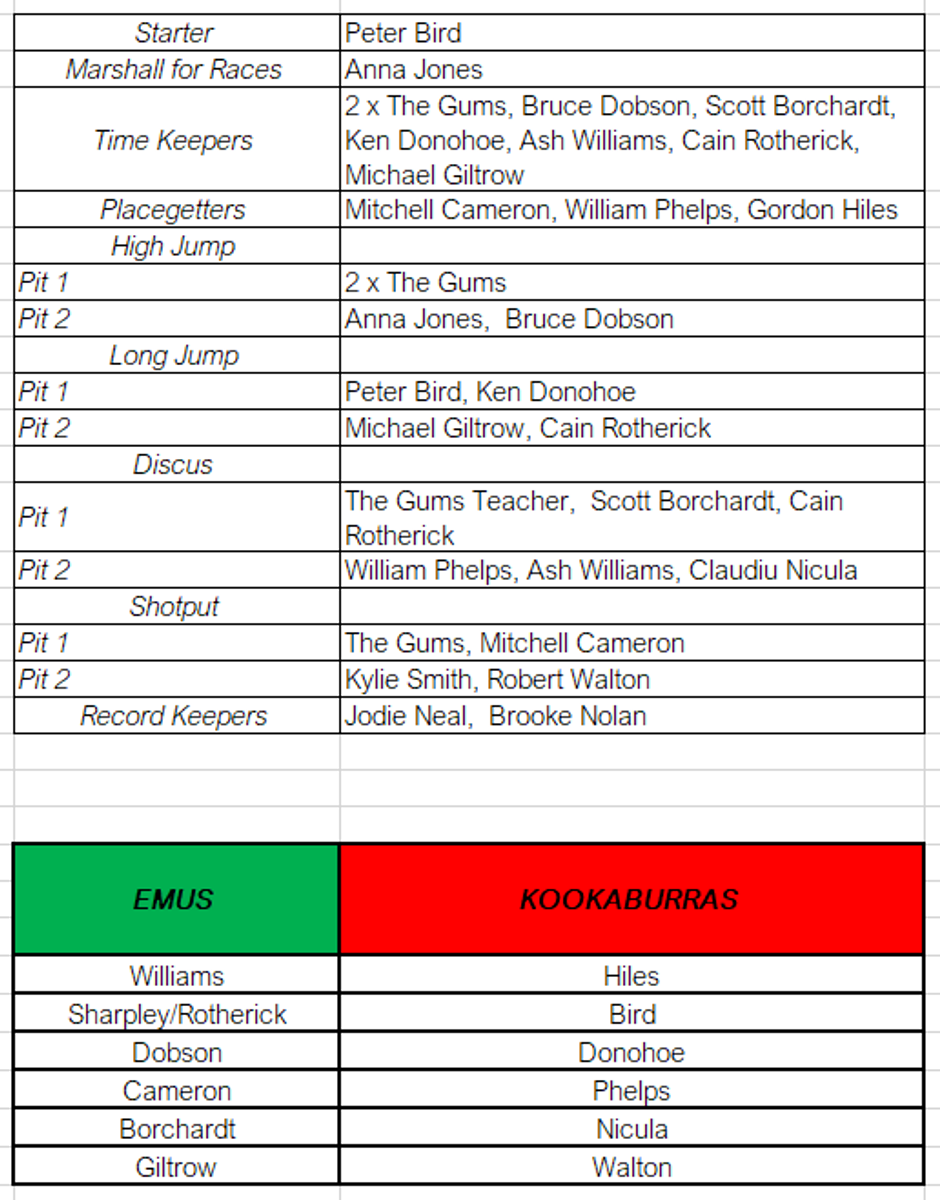School Noticeboard

Week 8
Max Borchardt - Showing kindness and helping others when they need it. Keep filling others' buckets Max.
Isla Giltrow - For focusing super hard on all of your assessment tasks. You should be proud of how you challenge yourself to improve.
Briella Borchardt - demonstrating great confidence in the delivery of your presentation on giraffes.
Jack Williams - being ready to learn at the beginning of each session.
Week 9
Annabella Nicula - Congratulations on finding interesting facts to write an information report about emus.
Grace Giltrow - Congratulations on your effort to write an impressive information report on kangaroos.
Interhouse Athletics Carnival - 18th July 2025
Please note that each family has been allocated a job to help cover the requirements of the upcoming carnival. We hope that you can join us.
Kindy News
12 Tips to boost early literacy:
To help you and your child get the most out of your story time, here are 12 early literacy tips from our early learning experts at Start Early and our Educare Chicago school:
- Start early. Reading to babies is important for healthy brain development and lays the foundation for language and writing skills.
- Make reading a part of your daily routine. Establishing a routine helps ensure that reading is part of your daily schedule, such as at naptime and bedtime. It also creates times during the day that both of you can look forward to.
- Try board and cloth books for babies. By age 1, babies can grab books. Board and cloth books are great options for babies who like to touch things and put everything in their mouths.
- Take turns with your toddler. By age 2, toddlers can hold a book and point at the pictures. Let your toddler turn the pages of a board book and respond to her when she points or reacts to the story.
- Ask your child questions. As you read to your child, make the experience interactive by asking him questions, such as “What do you think will happen next?” “What was your favorite part of the story? Why?”
- Reread your child’s favorite books. By age 3, children can complete sentences in familiar stories. Read her favorite books over and over to help her learn through repetition.
- Point out similar words. By age 4, children begin to recognize letters. You can point out words in a book that begin with the same letter to your preschooler to help him become familiar with the letter and begin to associate certain words with that letter.
- Count objects on the page. As you read to your child, count objects on the page together to help her also strengthen her early math skills.
- Have your preschooler tell you the story. By age 5, children can sit still for longer books and can create their own stories based on the pictures. Ask your preschooler to tell you the basic plot of the book or to make up stories based on what he sees on each page.
- Read with passion! Using inflection and maintaining the same highs and lows in your voice at the same point in a story helps your child begin to remember the words.
- Set an example. Let your child see you reading your books to help her develop her own love of reading.
- Just keep reading. Reading to your child helps him develop a habit of listening to stories and loving books. One the most important pieces of advice is to make sure you are reading to him early and often.
No matter how old your child is — from babies to toddlers to preschoolers — these tips will help you capitalize on this valuable time with your child, making reading a fun, educational and memorable experience for both of you.
